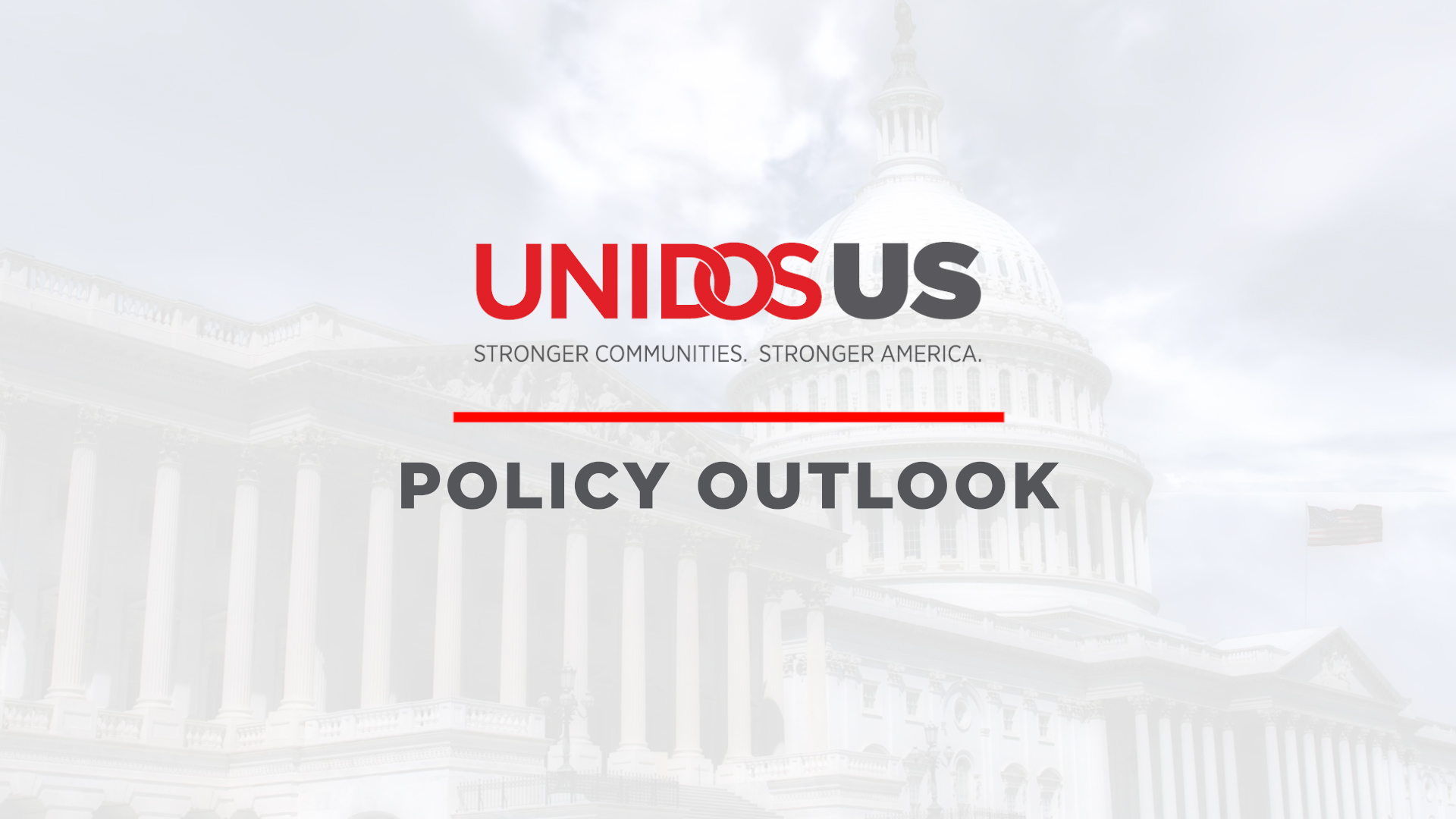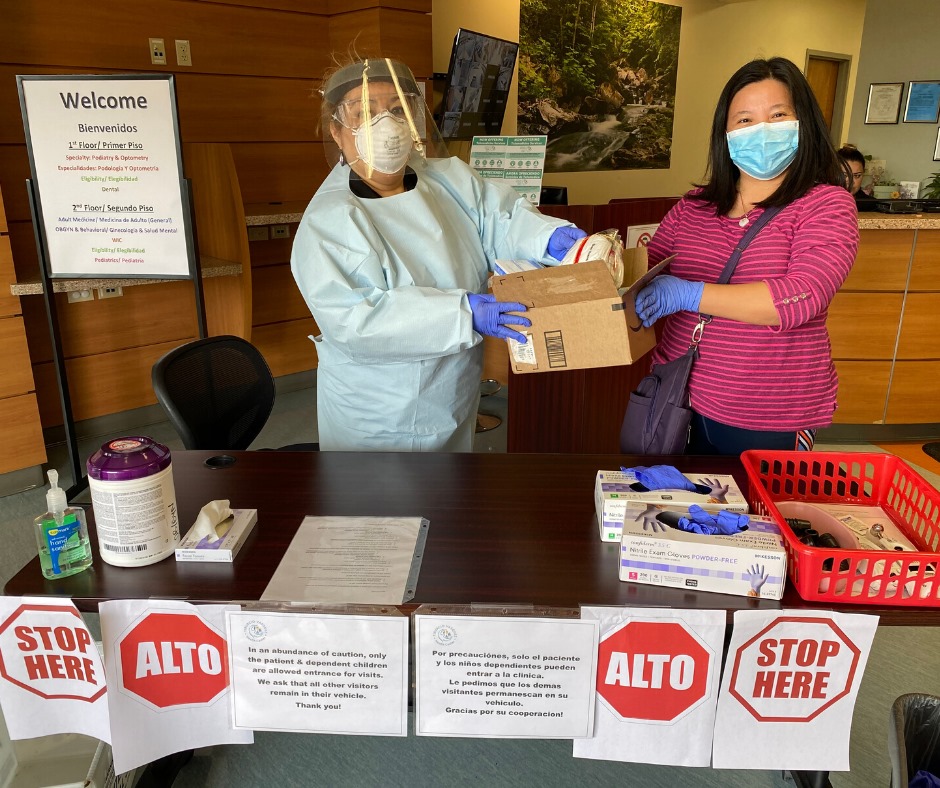VIDEO: What’s happening on Capitol Hill this week
We’re watching all the activity in Congress as the country fights the Coronavirus pandemic.
Here’s the latest:
The Coronavirus crisis continues to impact the lives of all Americans. Even if they aren’t sick, millions have lost their jobs, or have found themselves scrambling for child care.
Keep up with the latest from UnidosUS
Sign up for the weekly UnidosUS Action Network newsletter delivered every Thursday.
In the Latino community, according to one study, nearly half of Hispanics said their household has had someone lose their job or take a pay cut because of the COVID-19 outbreak.
Congress and the federal government must act to provide relief.
Last week, Congress passed, and President Trump signed the Coronavirus Aid, Relief, and Economic Security Act, also known as the CARES Act.
The CARES Act is just the first step in providing relief to workers that have been hit hard by the Coronavirus pandemic. We were pleased to see that the version that Congress passed—and President Trump signed into law—included the following priorities aimed at protecting working families.
Elements of the CARES Act
The elements of the CARES Act include:
- $260 billion for full paycheck replacement to ensure that laid-off workers receive 100% of their wages through several months of the crisis.
- The removal of needless barriers to unemployment insurance (UI) and allows part-time and self-employed workers to access UI benefits.
- $1,200 in direct payments to taxpayers with incomes up to $75,000 per year, before starting to phase out and ending altogether for those earning more than $99,000. Families would receive an additional $500 per child to further strengthen the safety net for those whose jobs and businesses are affected by the pandemic.
- A temporary halt on evictions and foreclosures and new funds for emergency rental assistance to help people stay in their homes.
- Loan forgiveness grants for small businesses and nonprofits to meet payroll obligations and help pay for expenses like rent, mortgage and utilities.
- Significant aid for hospitals and local health care systems, desperately needed by the brave men and women working in the health care sector to care for the sick and protect us from the worst of this pandemic.
- Much needed aid to Puerto Rico, including stimulus payments to residents of the Island, $200 billion in nutrition assistance and aid allocated to the territories to respond to the pandemic.
- The recognition in several areas the importance of providing support services in other languages, such as in housing and through relief to small businesses.
- $750 million for Head Start to sustain early learning programs for our youngest students.
- $30.75 billion for an Education Stabilization Fund for states, school districts and institutions of higher education to help provide online learning for all students, including English learners, and grants to college students for food, housing, course materials, technology, health care, and child care.
What’s missing
However, we at UnidosUS we believe more is needed to protect Americans in the 50 states, Washington, DC, and Puerto Rico.
- Easier access to emergency Medicaid. Given the magnitude of the health crisis, all individuals should have ready access to coronavirus testing and treatment, including the uninsured and underinsured, regardless of immigration status.
- Robust funding of housing counseling services that Latinos and other families will need to access available housing relief and resources, including those enacted in this bill.
- Direct relief payments to all taxpayers, including those of mixed immigration status families, who include millions of children who are U.S. citizens. This would extend such support to those families expected to be disproportionately hit by this emergency and help to further boost local economies.
- Spanish-language and culturally relevant information about COVID-19 testing and treatment and economic relief comprehensively incorporated in the pandemic response, especially regarding financial support, housing, health care and education programs.
- Automatic renewal of Employment Authorization Documents (EADs) held by those currently eligible to work, such as DACA and TPS holders. With U.S. immigration offices around the country closed indefinitely, those with expiring work permits may needlessly face unemployment and financial uncertainty throughout the pandemic.
- Student debt relief while many individuals are unable to make payments due to temporary loss of employment.
- Provisions to halt the growing achievement gap experienced by Latinos and ensure that schools in neighborhoods with the highest needs have the required resources to provide quality instruction to students in this challenging environment.
- Further investment in and expansion of SNAP. This includes a needed increase in the benefit allotment for SNAP and expansion of Disaster SNAP so that all who need assistance can receive it.
More is needed to protect vulnerable families and workers, including full and equitable access to coronavirus testing and treatment. We continue to urge Congress to act to protect all working families across the country during this unprecedented time.
We here at UnidosUS will continue to monitor the spread of the Coronavirus and will keep bringing you the latest on what policymakers must do.
For more updates this week, follow us on Twitter, Instagram, and Facebook @WeAreUnidosUS, and you can read our blog at blog.unidosus.org.



